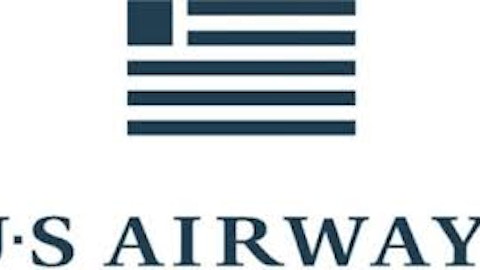On this day in economic and business history…
Wall Street opened for trading on Sept. 17, 2001 for the first time in a week. A week earlier, terrorist attacks had destroyed the World Trade Center, which housed many financial enterprises, leaving Wall Street feeling more vulnerable than it had felt in many years. No one expected it to be a good day, and the gloom infected stock exchanges early. The Dow Jones Industrial Average ended the day with a loss of 685 points — a record-breaking nominal decline that remained the worst of all time until 2008. In percentage terms, the day’s 7.1% loss also stands as one of the worst in Dow history. It also set a new record for total volume, as 2.3 billion shares were traded on the New York Stock Exchange and 2.2 billion changed hands on the Nasdaq.
The aviation industry led the slide, as you might expect. The Boeing Company (NYSE:BA) ended the day with a loss of 18%. United Technologies Corporation (NYSE:UTX), which has products on board “almost everything that flies,” in its own words, lost 28% of its value. Their primary American customers fared far worse. US Airways Group Inc (NYSE:LCC) lost more than half its value, and United Continental Holdings Inc (NYSE:UAL), then known as United Airlines, lost 43%. Both airlines fell into Chapter 11 bankruptcy by the end of the following year.
The extent of the damage to the airline industry was staggering and would not be fully known until much later. A report by the International Air Transport Association eventually quantified this impact:
- U.S. passenger traffic declined 5.9% in 2001 and fell another 1.4% in 2002.
- Global passenger traffic declined by 2.7% in 2001 and did not surpass 2000 levels until 2003.
- U.S. industry capacity declined for two straight years — a first since World War II.
- Domestic airline demand suffered a permanent decline after 2001.
- Airline revenue per $100 of GDP fell from $0.82 in 2000 to $0.69 in 2010.
- Total U.S. domestic capacity remained 4% below 2000’s levels a decade later.
- U.S. airlines enjoyed only three years of industry profitability from 2000 to 2010.
- The U.S. airline industry lost 138,000 jobs from 2000 through 2011.
- Global airline losses totaled $13 billion in 2001 and $11.3 billion in 2002.
- The industry did not post a net profit again until 2006, when it earned $5 billion.
- Aviation security is now estimated to cost $7.4 billion each year. This does not account for airport passenger screening expenses borne by taxpayers — the Transportation Security Administration’s budget was $7.8 billion in 2011.
Are you ready for some football?
The American Professional Football Association was created on Sept. 17, 1920 in Canton, Ohio. This first American pro football organization selected legendary athlete Jim Thorpe to be its president, even though he would be lacing up his boots for the local Canton Bulldogs, one of the league’s 16 founding teams. Few of them actually competed through the aborted first season, but nevertheless the league managed to add another six teams for its second season. In 1922, the league changed its name to one all American sports fans will recognize: the National Football League.
This proto-NFL maintained erratic membership and scheduling throughout its first decade. By the mid-’30s, many of the early teams had been lost due to poor location and weak fan interest, and for many of its prewar and early postwar years, the league fielded just 10 teams. It was not until 1966, when the NFL agreed to merge with the rival American Football League, that football began to take off as America’s true pastime (baseball is so 19th-century). The first Super Bowl took place in 1967, but the two leagues did not officially merge into one entity until 1970.
Today, the NFL is indisputably the most valuable sporting league in the U.S. Its $9.5 billion in annual revenue outpaces second-place Major League Baseball by $2 billion, despite the fact that there are 2,430 regular-season baseball games, compared to only 256 games in the NFL season. That works out to $37 million per regular-season game! No wonder tickets costs so much these days.






